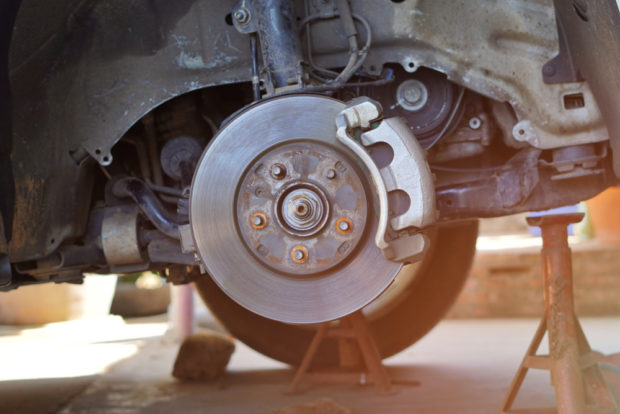Driving a car involves more than just steering and accelerating; it also requires an understanding of essential safety features, such as the brake system. Your car’s brakes are arguably the most critical component when it comes to ensuring your safety on the road. Understanding how they work, knowing when maintenance is required, and recognizing signs of potential issues can all contribute to keeping you safe and your car in good condition.
How Brakes Work
Disc Brakes vs. Drum Brakes
Most modern cars are equipped with either disc brakes, drum brakes, or a combination of both. Disc brakes use calipers to squeeze brake pads against a rotor to slow down or stop the wheel. This design is efficient and dissipates heat well, making it ideal for higher-performance vehicles. Drum brakes, on the other hand, use brake shoes that press against the inside of a drum to slow down the wheel. They are simpler in design and are commonly found in older vehicles or on the rear wheels of some modern cars.
Hydraulic System
Regardless of whether your car has disc brakes or drum brakes, the braking system operates hydraulically. When you press the brake pedal, it pushes brake fluid through a series of brake lines to the braking components at each wheel. This hydraulic pressure is what enables the brake pads or shoes to create friction against the rotors or drums, thereby slowing down the wheels.
Signs Your Brakes Need Maintenance
Squeaking or Grinding Noises
One of the most common signs that your brakes need attention is unusual noises when you apply the brakes. Squeaking, squealing, or grinding sounds can indicate worn brake pads or shoes. Brake pads have wear indicators built into them, which produce a high-pitched squeal when the pads are worn down. Ignoring these sounds can lead to more extensive and expensive repairs, such as rotor or drum replacement.
Soft or Spongy Brake Pedal
If you notice that your brake pedal feels soft or spongy when you press it, this could indicate air or moisture in the brake lines, or it may suggest a problem with the hydraulic system. In either case, it’s crucial to have your brakes inspected promptly to ensure they are functioning correctly. A soft brake pedal can compromise your ability to stop quickly in an emergency situation.
Vibrations or Pulsations
If you feel vibrations or pulsations through the brake pedal or steering wheel when you apply the brakes, it could mean that the brake rotors are warped. Warped rotors can develop over time due to overheating or prolonged heavy braking. Getting them checked and possibly resurfaced or replaced will restore smooth braking performance and prevent further damage to the braking system.
Car Brake Maintenance Tips
Regular Inspections
Regular inspections of your car’s brakes are essential for catching potential issues early. A qualified mechanic can inspect the brake pads, shoes, rotors, drums, and hydraulic system to ensure everything is in good condition. They can also check the brake fluid level and condition, as old or contaminated brake fluid can affect brake performance.
Brake Pad Replacement
Brake pads are designed to wear down over time due to friction. Most manufacturers recommend replacing them every 30,000 to 70,000 miles, but this can vary depending on your driving habits and the type of brake pads installed. Waiting too long to replace worn brake pads can damage other brake components and compromise your safety.
Brake Fluid Flush
Brake fluid absorbs moisture over time, which can lead to corrosion within the brake system and reduced braking performance. It’s recommended to have your brake fluid flushed and replaced every two to three years, or as recommended by your vehicle manufacturer. This simple maintenance task can extend the life of your braking components and help maintain reliable brake performance.
Conclusion
Understanding your car’s brake system and knowing when maintenance is required are essential aspects of responsible vehicle ownership. By staying aware of the signs that indicate brake problems and following a regular maintenance schedule, you can help ensure your safety on the road and prolong the life of your car’s braking components.
Need an Auto Mechanic in Madison, TN?
Don’t wait until an issue arises—schedule your next maintenance appointment with us today and enjoy the peace of mind that comes with a well-maintained vehicle. Your car—and your wallet—will thank you in the long run.

